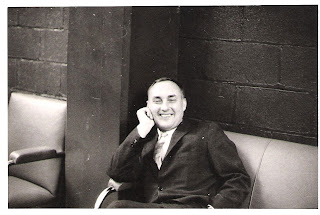In the heat of mid
summer and through the days of the full moon, I have been absorbed in
two events: one being the birth of the future King and the other
reading, The Yonahlosse Riding Camp for Girls. Anton Disclafoni's
first novel is a breathtaking story. Set amid orange groves in
Florida and then at an old riding camp in the hills of North
Carolina, this book does what we hope for in our summer reading; it
transports us to another time and a well imagined place.
Having been a
veteran of both boarding school and summer camp, I know the
cloistered worlds where young woman were sent to build friendships,
to gain skills, and hopefully, to stay out of trouble. As my camp had
horses and a riding ring, I am very familiar with the obsessions that
accompany equestrian pursuits. Disclafani, herself a skilled
horsewoman who competed nationally, brings an ability to describe
riding to a new level. The reader absorbs her fearlessness with
admiration and awe. Never have I read a better description of an
annual competition then in this debut novel.
Aside from it being
a great read for horsey types, it captures something of the Depression, the thirties, the ruin that grabbed the most secure families, as
if it had a hand on the back of their necks and pulled them down with
tremendous force. Abandoned houses,
quiet declines, suicide and peril are woven into this tale. As the Depression haunted the parents of my generation who were children
during those frightening years, we are too quick to joke about all
the carefully wrapped and preserved little bits of food in the freezer, the
grandmothers who still collected rubber bands, the women who washed
and saved the tin foil, even the ones who washed and dried plastic
bags and hung them on the line; they kept up with these practices because they
never lost their fear of the wolf at the door. In this book, the Depression is not depicted in dust bowls and bread lines, but rather
stalking the genteel and ordered world of the privileged, where girls
are suddenly yanked from their known realities and set out into an uncertain
future. Family life seems similarly fragile, as if the precious and
beautiful life in the orange groves left them vulnerable, only to be toppled by
an unwelcome frost. The mothers were cocooned in their beautiful
homes, with all rooms seen as exquisite and in perfect balance and
order. Yet one event could destroy all and young women could heap shame on
their families by one imprudent night.
I remember that world; I remember my grandmothers with their dresses, and their silver tea services, their china, and their housekeepers, their luncheons and their stories, often involving one false move that led to ruin. You had to get a good husband at all costs; your house was, as Disclafani states, "both mother and father." Your daughters were kept at a curious distance; sexual awakening was feared and mistrusted. All of this is beautifully captured in this smart and terrific novel. What Disclafani manages to impart is that the camp girls were not delicate flowers- not girls who rode horses anyway. They were made of flesh and blood; they were familiar with the sound of their bones cracking, they took their cues from magnificent creatures whose noble blood they cherished. The barns were full of sweat and muck. They girls were expected to travel from the bold and the beautiful, from the rough and the wild, from the sheer abandon of a mad gallop, to the starched linen and polite conversation of the dinner table. Disclafani writes:
I remember that world; I remember my grandmothers with their dresses, and their silver tea services, their china, and their housekeepers, their luncheons and their stories, often involving one false move that led to ruin. You had to get a good husband at all costs; your house was, as Disclafani states, "both mother and father." Your daughters were kept at a curious distance; sexual awakening was feared and mistrusted. All of this is beautifully captured in this smart and terrific novel. What Disclafani manages to impart is that the camp girls were not delicate flowers- not girls who rode horses anyway. They were made of flesh and blood; they were familiar with the sound of their bones cracking, they took their cues from magnificent creatures whose noble blood they cherished. The barns were full of sweat and muck. They girls were expected to travel from the bold and the beautiful, from the rough and the wild, from the sheer abandon of a mad gallop, to the starched linen and polite conversation of the dinner table. Disclafani writes:
"I took pleasure in how good I was in the saddle, how well I knew my way around a horse. I was good at something in a way most people are never good at anything in their lives. Horses were a gift; how many people have such a constant in their life, separate from the rough and often beautiful mess that is their family?"
If you are heading
to the beach or the cottage, if you are boarding a plane, or packing
the camper, I would toss the Yonahlossee Riding Camp for Girls into
your weekend, canvas bag. If you know a great horsewoman, or two, or
three, give this to them with a five star recommendation.




.JPG)














